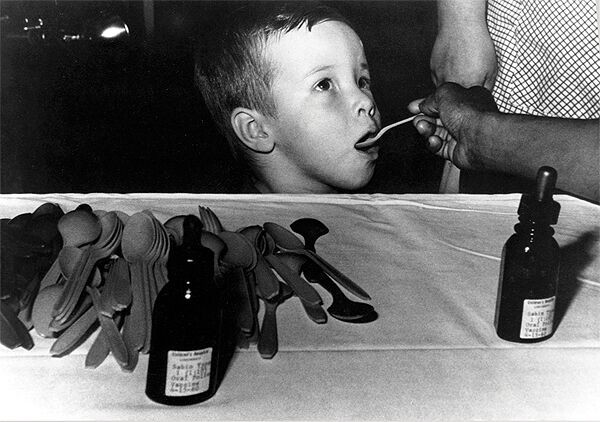
MSN: Who created the polio vaccine?
New generation discovering UC virologist Albert Sabin's work — the polio vaccine
The COVID-19 era is casting light back more than a half century to the time when former University of Cincinnati virologist Albert Sabin developed the live oral polio vaccine. Recent worldwide media coverage, including the latest from MSN, is highlighting the health care hero's work.
"By 1963, Sabin had created an oral live-virus vaccine for all three types of poliovirus that was approved for use by the U.S. government," states the MSN story. "Sabin's version was cheaper and easier to produce than the Salk vaccine, and it quickly supplanted the Salk vaccine in the U.S."
In 1972, Sabin donated his vaccine strains to the World Health Organization (WHO), which greatly increased the vaccine's availability in low-income countries.
Impact Lives Here
The University of Cincinnati is leading public urban universities into a new era of innovation and impact. Our faculty, staff and students are saving lives, changing outcomes and bending the future in our city's direction. Next Lives Here.
Stay up on all UC's COVID-19 stories, read more #UCtheGood content, or take a UC virtual visit and begin picturing yourself at an institution that inspires incredible stories.
Related Stories
UC professor curates Little Women exhibition to accompany Playhouse in the Park production
February 16, 2026
The exhibition traces how artists shaped the visual legacy of Alcott’s beloved novel.
Dark Energy Survey sheds light on expansion of universe
February 13, 2026
Astronomy talks to University of Cincinnati physicist Jessica Muir about an international project examining dark energy. The project could help explain why the universe is expanding at an accelerating rate.
How sports gambling is changing the game
February 13, 2026
Fantasy sports and the wager on which team will win a game are nothing new. But with sports gambling apps making it practically effortless for people to wager on just about any aspect of a match, gambling’s popularity is changing the game. The Journal-News turned to Mike Fry, professor of operations, business analytics and information systems at the University of Cincinnati’s Lindner College of Business to break down the rise and the risks of sports betting.
